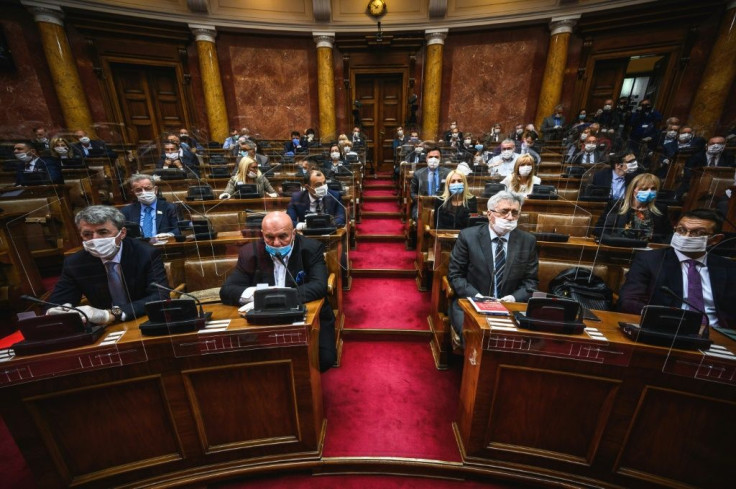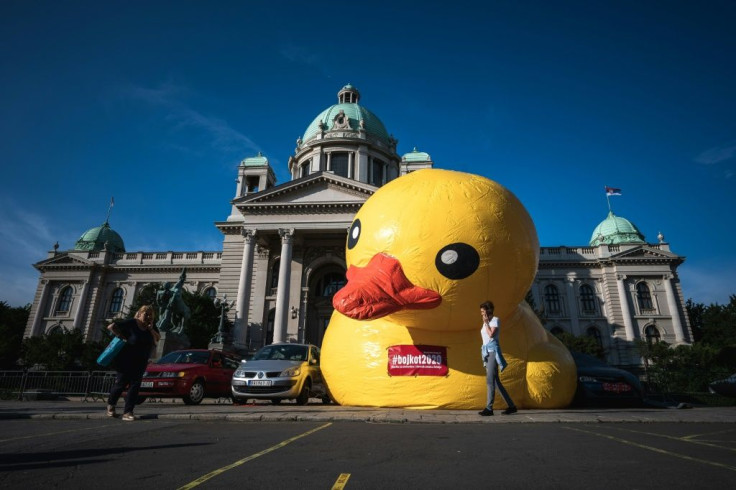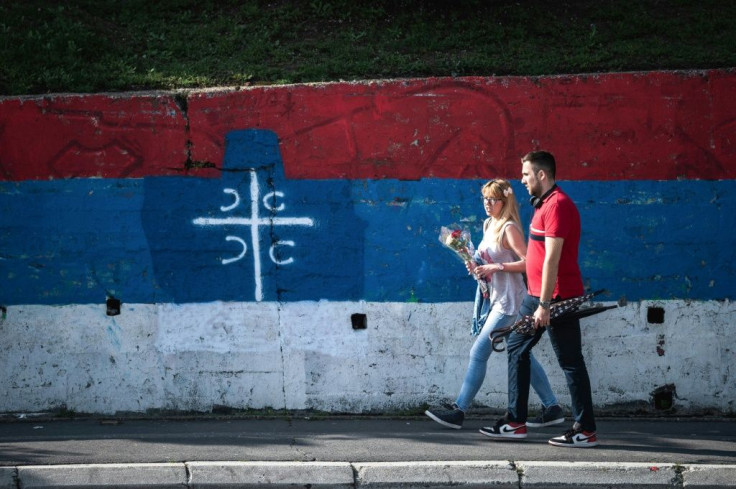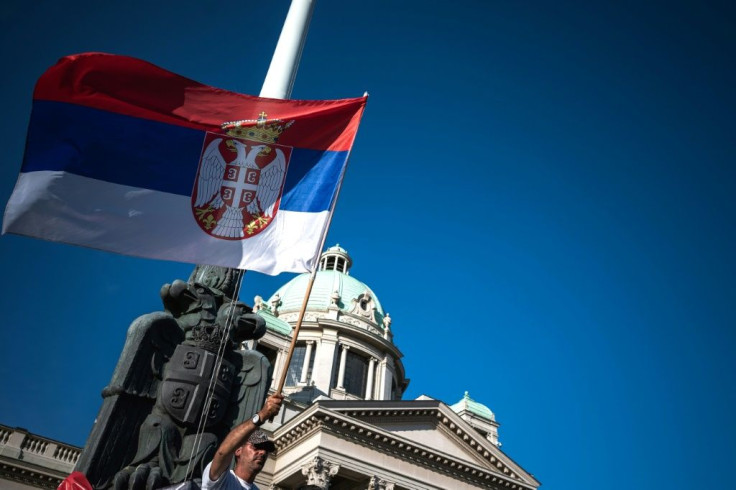Serbia Heads To Elections Undermined By Boycott, Virus

Serbians are to vote in parliamentary polls Sunday after a lacklustre campaign devoid of rallies because of the coronavirus crisis, and an opposition boycott seems set to assure victory for the ruling party.
Dominating the unusual electoral scene is Serbia's powerful President Aleksandar Vucic, who is not running for parliament himself but whose name is still on the ballot as the head of his Serbian Progressive Party (SNS), which has been in power for eight years.
Their path to victory is all but ensured by a boycott pushed by opposition leaders who say free and fair elections are not possible under Vucic's increasingly authoritarian rule.
Yet their camp is anything but united: while some of the main parties are boycotting, almost 20 other smaller groups are still in the race, with little in common besides their aversion to the president.
Vucic's centre-right party is thus in pole position to boost its majority with 60 percent of the vote, according to a survey by research agency Faktor Plus.
Next in line with around 12 percent is its coalition partner, the Socialist Party of Serbia (SPS).
The bigger unknown may be turnout among the country's 6.5 million registered voters, in light of lingering coronavirus fears and the boycott campaign.

A low turnout could further dampen the vote's legitimacy, with Vucic already facing tough assessments from rights groups who say the country's democracy is crumbling in his grip.
As the vote draws near, pro-boycott TV spots have been offering cheeky suggestions for other ways to spend this Sunday.

Options put forth include gardening or solving a crossword puzzle "because that is the best way to use a pencil that day."
Vucic, who was prime minister twice before becoming president, has rubbished the boycott movement as the real threat to Serbia's democracy, accusing opposition leaders of hiding behind their unpopularity.
The 50-year-old himself can boast he is more popular than ever, with polls showing a surge of support for his handling of Serbia's initial coronavirus outbreak.
The country has lost around 260 lives to the virus but has avoided the scale of the epidemics seen in hard-hit European countries.

With lockdown measures now lifted and infections starting to tick up again, Vucic moved to cancel election rallies but not the vote itself, which was already postponed from April.
He has however taken to the stage for virtual gatherings, standing in front of hundreds of computer screens of his supporters.
"I did not come today to tell you 'vote for us, there will be honey and milk and flowers will blossom', I cannot do that," he told a recent virtual rally.
"But I tell you in 2025 you will have an average salary of 900 euros ($1,000)," he assured, a steep rise from wages that currently average 500 euros per month.
Analysts say elections are unlikely to be free or fair in light of Vucic's sweeping control of government and much of the press.
Although the presidency is meant to be a ceremonial role in Serbia, Vucic has unabashedly remained the country's top decision-maker.
He has yet to announce who the next prime minister would be if SNS wins.
The "media environment is not free, institutions are no longer independent so it's very hard for anybody to challenge the government in elections," University of Graz professor Florian Bieber told AFP.
The US-based watchdog Freedom House also said last month that Serbia is no longer a democracy after "years of increasing state capture, abuse of power, and strongman tactics" under Vucic.
Belgrade pensioner Danica Jankovic, however, defends the president.
"He is doing his best and works a lot for his people," she told AFP.
Others, like 46-year old bank clerk Dragana Mihajlovski, have decided staying home is the best way to express themselves.
"Even if the boycotting opposition seem weak and do not necessarily represent my political views, I will not go to vote because what Vucic is doing is unbearable," she said.
© Copyright AFP {{Year}}. All rights reserved.





















